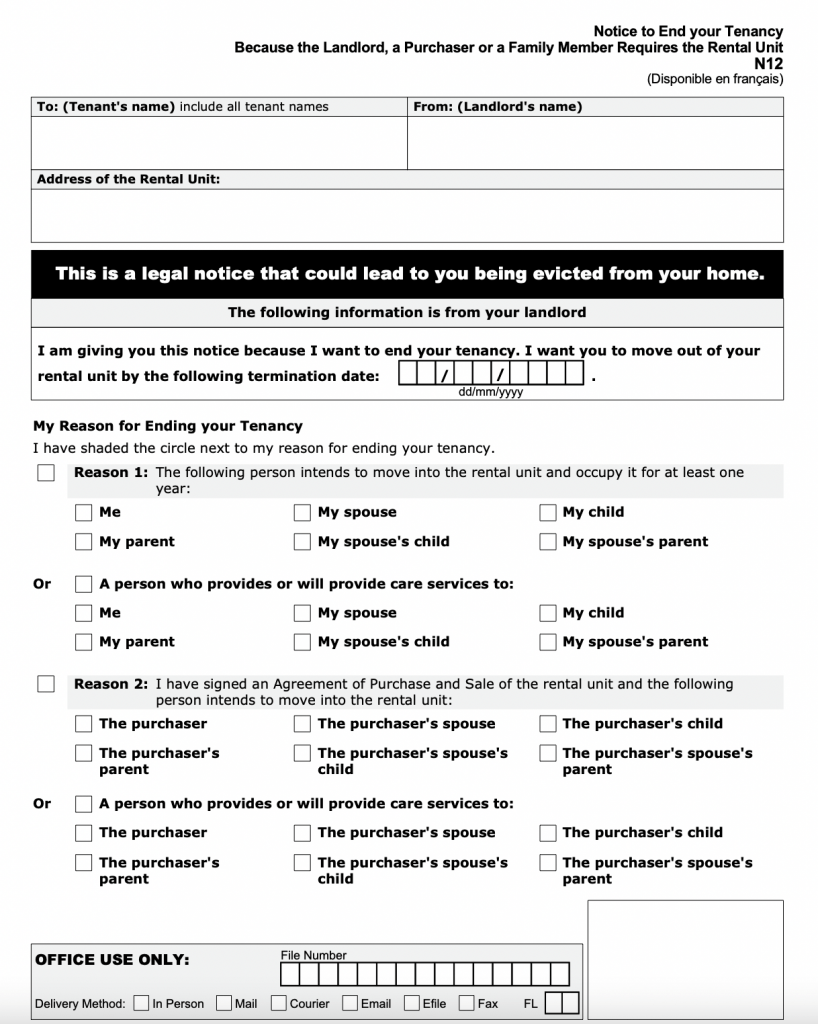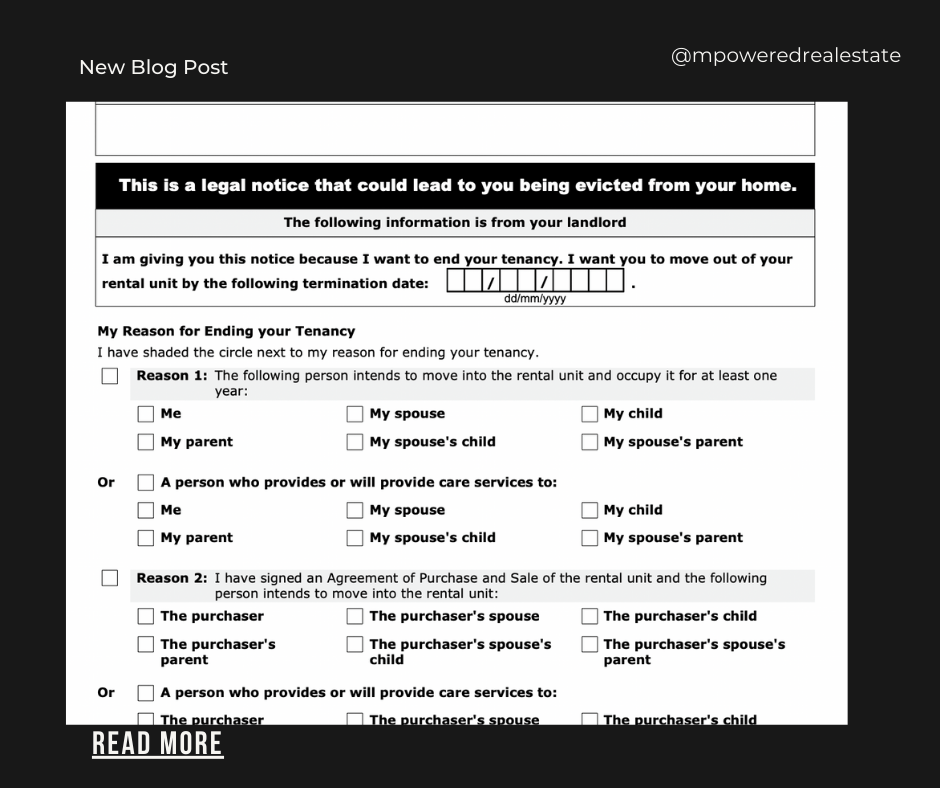If you rent in Ontario, you’ve probably heard about different eviction forms and notices. One of the most common (and confusing) ones is the N12 Notice to End Tenancy.
Getting a notice like this can feel stressful, but don’t worry — it doesn’t mean you have to pack your bags right away. Let’s break down what an N12 actually is, why landlords use it, and what your rights are if you receive one.

What is a N12 Notice?
A N12 Notice is a form that a landlord can give if they, a close family member, or sometimes the person buying the property wants to move into your rental unit.
It’s not the same as being evicted for not paying rent or damaging the place — it’s specifically for personal use of the unit.
And here’s the important part: getting a N12 does not mean you’re automatically evicted. Your landlord still has to go through the Landlord and Tenant Board (LTB) for it to be official.
Who Can Move In With a N12?
A landlord can serve a N12 if one of these people intends to move in:
- The landlord themselves
- The landlord’s spouse, child, or parent
- The child or parent of the landlord’s spouse
- A buyer of the property, or their close family member
So basically, it’s only for the landlord or very close family — not friends, cousins, or random relatives.
Why Do Landlords Use a N12?
The most common reasons are:
- The landlord wants to move back in (for example, if they were renting the place out while living somewhere else).
- A family member needs the unit (like a child going to school or a parent downsizing).
- The property is sold and the new owner plans to live there.
What Are Tenants’ Rights With a N12?
Ontario law has built-in protections because N12s can sometimes be misused. Here’s what you should know:
- You must get at least 60 days’ notice before moving out.
- The landlord has to give you one month’s rent as compensation (or another suitable place to live).
- The landlord or family member must actually move in and stay there for at least a year.
- You have the right to challenge the N12 at the Landlord and Tenant Board if you don’t think it’s being used fairly.
What If a Landlord Misuses a N12?
Unfortunately, some landlords give N12s just to push tenants out so they can rent the unit at a higher price.
If the landlord or buyer doesn’t actually move in after you leave, that’s called a bad faith eviction. In that case, you may be able to take them to the LTB and get compensation (sometimes up to 12 months’ rent).
What To Do If You Get a N12
- Don’t panic — it’s not an instant eviction.
- Read the notice carefully and check the dates.
- Talk to your landlord if you’re not sure who’s supposed to be moving in.
- Know your rights — you can call the LTB or a local legal clinic for advice.
- Attend the hearing if your landlord files with the LTB — you’ll get a chance to tell your side.
The Bottom Line
A N12 notice is meant for situations where the landlord or a close family member genuinely wants to move into the rental unit. Tenants in Ontario have strong protections, including compensation, proper notice, and the ability to challenge the notice if it seems unfair.
So if you ever receive a N12, take a deep breath — learn your rights, ask questions, and make sure the process is being done properly.
Any questions/concerns about your current tenancy agreement or help finding a new rental – we are always here for you.
Further information can be found through the Ontario Landlord Tenant Board (link provided) https://tribunalsontario.ca/documents/ltb/Brochures/How%20a%20Landlord%20Can%20End%20a%20Tenancy%20(EN).html






